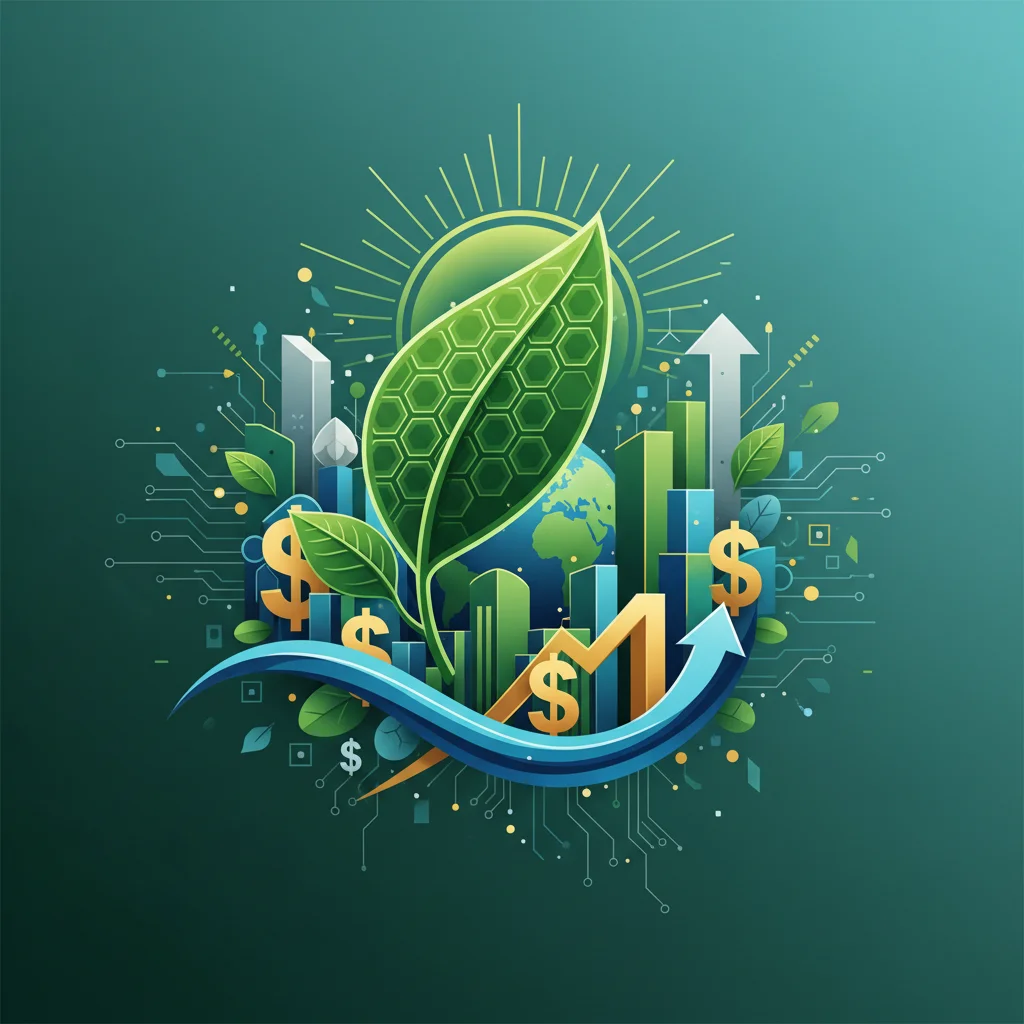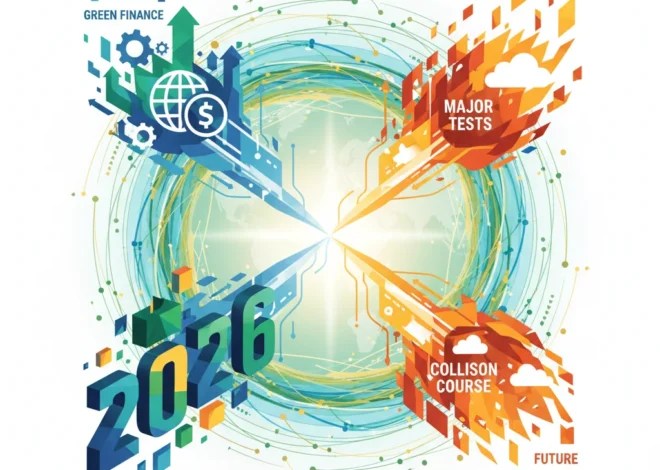
Brazil’s Green Revolution: Why COP30 in the Amazon is a Major Signal for Global Finance
In 2025, the world’s most critical climate conference, COP30, will convene not in a polished European metropolis, but in Belém, a city at the mouth of the Amazon River in Brazil. This choice is more than symbolic; it’s a bold declaration. Brazil is positioning itself as the epicenter of a new, sustainable global economy, and it’s sending a clear message to investors, business leaders, and financial markets worldwide: the future of green finance is being forged in the heart of the rainforest.
This strategic move is part of a comprehensive national effort to pivot from an environmental pariah to a green superpower. In a recent letter to the Financial Times, Antonio de Aguiar Patriota, the Ambassador of Brazil to the UK, laid out the country’s case. He argued that hosting COP30 is the culmination of a deep-seated commitment to sustainability, backed by ambitious policies and a clean energy profile that is the envy of many developed nations. But for the discerning investor and finance professional, the question remains: is this a genuine transformation or a well-marketed rebranding? The answer lies in dissecting Brazil’s economic strategy, its financial innovations, and the tangible investment opportunities emerging from its ambitious “Ecological Transformation Plan.”
Deconstructing Brazil’s Green Credentials: A Look at the Data
Brazil’s claim to environmental leadership isn’t built on rhetoric alone. The nation’s energy infrastructure and recent policy shifts provide a compelling, data-driven narrative. While the country’s environmental record has faced intense scrutiny, particularly concerning the Amazon, the current administration is making a concerted effort to reverse negative trends and leverage its natural advantages.
A Global Leader in Clean Energy
One of Brazil’s most significant assets is its remarkably clean energy matrix. While major economies grapple with weaning themselves off fossil fuels, Brazil has long been a leader in renewable energy, primarily due to its vast hydropower resources. According to the Ambassador, Brazil’s energy mix is one of the cleanest among G20 countries, a fact that underpins its entire green economy strategy. This provides a stable foundation for expanding into other renewables like solar and wind, creating a resilient and low-carbon industrial base.
To put this in perspective, here is a comparison of renewable energy’s share in the total energy supply for Brazil and other major economies:
| Country/Region | Renewable Energy Share of Total Energy Supply (Approx.) |
|---|---|
| Brazil | ~45% |
| European Union | ~22% |
| China | ~15% |
| United States | ~13% |
| World Average | ~14% |
Source: Data compiled from various reports by the International Energy Agency (IEA) and national energy ministries. Figures are approximate and can vary by year.
Tackling the Amazon Challenge Head-On
No discussion of Brazil’s environment is complete without addressing deforestation in the Amazon. Under the previous administration, deforestation rates surged, alarming the international community. However, the current government has reinstated and strengthened environmental protection policies, yielding significant results. Recent data from Brazil’s National Institute for Space Research (INPE) shows a dramatic turnaround. In 2023, deforestation in the Brazilian Amazon fell by a staggering 50% compared to the previous year, reaching its lowest level since 2018. This reversal is a critical proof point for the government’s commitment and a crucial factor in restoring investor confidence.
Beyond the Odds: How Financial Technology is Turning Sports Betting into the Next Stock Market
The Financial Architecture of a Green Economy
Brazil’s strategy extends far beyond environmental policy; it’s a comprehensive economic overhaul designed to attract capital and foster innovation. The government’s “Ecological Transformation Plan” is the blueprint for integrating sustainability into every facet of the economy, from banking and finance to agriculture and industry.
Pioneering Sustainable Finance with Green Bonds
A landmark moment in this transformation was Brazil’s inaugural issuance of sovereign sustainable bonds in late 2023. The country raised $2 billion from the international market, with proceeds earmarked for social and environmental projects. This was not just a fundraising exercise; it was a powerful signal to the global finance community. By linking its national borrowing to ESG (Environmental, Social, and Governance) targets, Brazil is holding itself accountable and creating a new asset class for investors seeking green returns. This move enhances the country’s credibility, potentially lowers its borrowing costs over time, and sets a precedent for corporate issuers on the Brazilian stock market.
The Role of Fintech and Blockchain in a Transparent Future
The credibility of any green initiative hinges on transparency and traceability, especially in complex supply chains like agriculture and mining. This is where financial technology is set to play a transformative role. Brazil’s burgeoning fintech sector is developing innovative solutions to these challenges.
- Blockchain for Supply Chain Integrity: Imagine being able to scan a QR code on a bag of coffee or a cut of beef and instantly verify its origin, ensuring it is “deforestation-free.” Blockchain technology can create immutable records, providing a level of transparency that builds trust with consumers and international buyers, and helps companies de-risk their operations.
- Digital Carbon Markets: As the global carbon trading economy grows, fintech platforms will be essential for creating liquid and transparent markets for carbon credits generated from reforestation and avoided deforestation projects in the Amazon.
- Democratizing Green Investing: Financial technology can also empower smaller investors to participate in the green transition through platforms that facilitate fractional investing in renewable energy projects or sustainable agriculture ventures.
From Policy to Portfolio: Where are the Investment Opportunities?
For finance professionals and business leaders, Brazil’s green pivot translates into a spectrum of tangible investment opportunities across multiple sectors of its economy.
- Renewable Energy Expansion: Beyond hydropower, Brazil has world-class potential for solar and wind energy, particularly in its sun-drenched northeast. The ongoing energy transition requires massive investment in generation, transmission, and storage technology.
- The Bio-economy: The Amazon is not just a carbon sink; it’s a vast repository of biodiversity. Investing in the “bio-economy” involves the sustainable harvesting of natural products for use in pharmaceuticals, cosmetics, and advanced materials, creating value while preserving the forest.
- Sustainable Agriculture: As a global agricultural powerhouse, Brazil’s shift towards low-carbon farming practices—such as no-till farming and integrated crop-livestock-forest systems—presents a major opportunity. This includes investing in agritech, soil regeneration, and companies leading the charge in sustainable protein production.
- Green Mining and Critical Minerals: The global demand for minerals essential for batteries and electronics is soaring. Brazil has significant reserves, and the government is promoting a “green mining” framework focused on minimizing environmental impact and ensuring benefits for local communities. This is a high-stakes area of the green transition, directly impacting global trading and supply chains.
India's Banking Megamerger: Forging Global Titans or 'Too Big to Fail' Giants?
Conclusion: A High-Stakes Bet on a Sustainable Future
Brazil’s hosting of COP30 in Belém is a calculated move to reframe its narrative on the world stage. It’s an invitation to the global financial community to look beyond past headlines and see the foundations of a new, green economy being laid. The combination of a clean energy matrix, renewed political will to combat deforestation, and a sophisticated economic plan presents a compelling case for investment.
The path forward is not without its challenges. Political volatility, institutional hurdles, and the immense complexity of sustainable development in the Amazon are real risks that cannot be ignored. However, for investors with a long-term horizon and an appetite for impactful opportunities, Brazil offers a unique proposition. The success of its Ecological Transformation Plan could provide a blueprint for other emerging economies, proving that it is possible to align economic growth with environmental stewardship. As the world turns its eyes to Belém in 2025, it will be looking for more than climate pledges; it will be looking for the financial pulse of a green revolution in the making.
The Corporate Handshake: How Swiss Business Leaders Brokered a Landmark US Tariff Reduction


